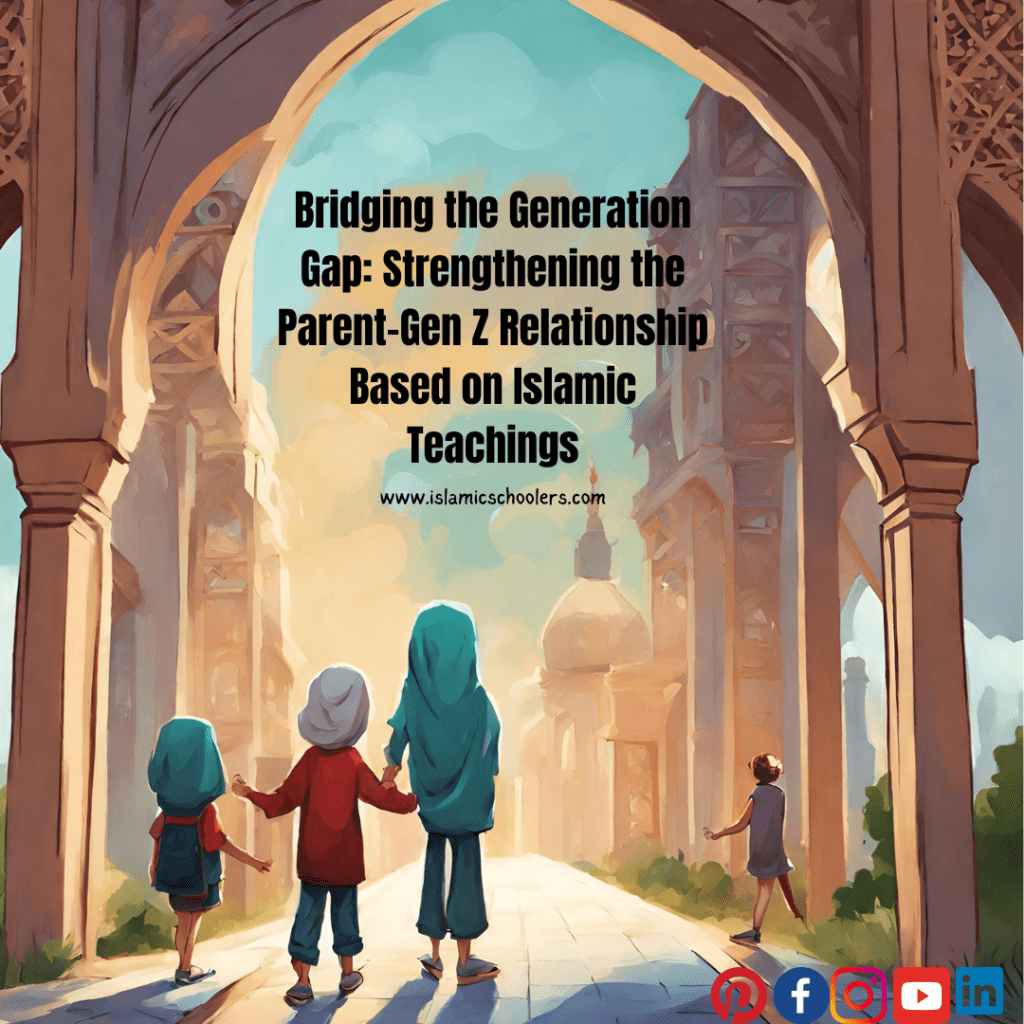As the world continues to rapidly change, so too does the landscape of family dynamics. With each new generation comes a unique set of perspectives, values, and experiences. This has given rise to a gap between parents and their Generation Z (Gen Z) children. However, by going into the deep teachings of Islam, we can gain valuable insights on how to mend this divide and foster a stronger parent-Gen Z relationship.
Understanding the Generation Gap:
The Generation Z population, born between the mid-1990s and early 2000s, have grown up in a technologically advanced world that their parents often struggle to fully comprehend. This gap is exacerbated by varying cultural influences, societal changes, and generational differences in communication styles. Yet, Islam teaches us the importance of compassion, empathy, and seeking knowledge to bridge these divides.

Building Empathy:
Islamic teachings emphasize the virtue of empathy, which plays a pivotal role in strengthening the relationship between parents and Gen Z children. Parents should strive to understand the social, technological, and cultural influences that shape their children’s lives. By putting aside preconceived notions and adopting a willingness to learn, parents can better empathize with their Gen Z children.
Active Listening:
Listening is a fundamental aspect of communication that is often overlooked. Islamic teachings reinforce the importance of active listening, allowing both parents and Gen Z children to express themselves openly. Creating a safe space where open and honest conversations can take place encourages mutual respect, understanding, and the sharing of experiences. It is vital for parents to sincerely listen without judgment, giving their children a sense of validation and support, all in the light of the teachings of Islam. And shaping their children lives according to the religion.
Adapting to Technological Advances:
With digital advancements rapidly reshaping the world, parents often struggle to keep up with Gen Z’s proficiency in technology and online platforms. Islamic teachings highlight the importance of seeking knowledge, and parents must embrace learning about these new tools. By familiarizing themselves with technology, parents can better understand the digital landscape their children navigate daily. This joint learning experience can bring them closer and ensure a safer and more informed online environment for Gen Z.
Balancing Tradition and Modernity:
Incorporating Islamic teachings into everyday life is crucial when trying to bridge the gap between parents and Gen Z children. Parents should convey these teachings in a relevant and relatable manner, ensuring that the core values of Islam are understood within the context of contemporary challenges. By striking a balance between tradition and modernity, parents can present Islamic principles in a way that resonates with their children while addressing their unique concerns.
The gap between parents and their Gen Z children can be effectively bridged by embracing Islamic teachings that promote understanding, empathy, active listening, and knowledge seeking. By taking these teachings to heart, parents can build a stronger relationship with their children, fostering a nurturing and harmonious family environment. Through shared values rooted in Islamic principles, parents and Gen Z children can work together to navigate the challenges of modernity while remaining steadfast in their faith.

